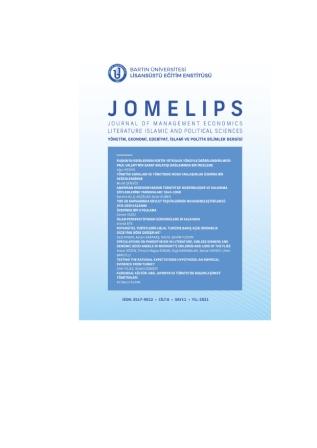TESTING THE RATIONAL EXPECTATIONS HYPOTHESIS: AN EMPIRICAL EVIDENCE FROM TURKEY
TESTING THE RATIONAL EXPECTATIONS HYPOTHESIS: AN EMPIRICAL EVIDENCE FROM TURKEY
Author(s): Ümit Yıldız, Bülent GünsoySubject(s): Micro-Economics, Economic policy, Political economy
Published by: Bartın Üniversitesi, Sosyal Bilimler Enstitüsü
Keywords: Price Expectations; Rational Expectations Hypothesis; Unbiasedness; Efficiency;
Summary/Abstract: The rational expectations hypothesis suggests that economic agents make accurate forecasts about the future using all available information effectively. According to the hypothesis, even if the economic agents make incorrect estimates, they shape the expectations for correcting the error made using the available information and do not make systematic errors. In this study, the validity of the rational expectations hypothesis for Turkey, using expectations of the inflation rates, is tested. In this context, it is examined whether the expectations are rational or not by examining the unbiasedness and the efficiency of the expectations about the price by using ordinary last squares regressions. According to results, while the efficiency hypothesis is accepted for the expectations of inflation, the unbiasedness for expectations is rejected in the study. This means that although the current information is being used, economic agents cannot make the accurate forecasts. Thus, the rational expectations hypothesis for inflation expectations for Turkey is rejected. However, results also show that although the expectations are biased, professional forecasters take into account many variables while forecasting the inflation. This implies that policies can be partially effective if expectations are taken into account in the implementation of economic policies.
Journal: JOMELIPS-Journal of Management Economics Literature Islamic and Political Sciences
- Issue Year: 6/2021
- Issue No: 1
- Page Range: 197-225
- Page Count: 29
- Language: English

